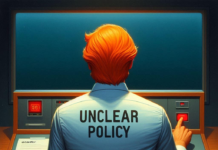MARKET PERSPECTIVE
By J Mulraj
July 22-28, 2023
If Modi is serious about making India a developed economy, he has to tackle this!
The number of retail investors in NSE, India’s largest stock exchange, went up from 3 million, in Jan 2020, to 11.7 m two years later, but has, since, fallen to 8 million by March 2023. Hang on, SEBI, before stretching your hand to pat yourself on the back, to put this in perspective. The Bombay Stock Exchange was established in 1875, so it has taken 148 years to induce 8 million (out of a population of 1,400 million, or a mere 0.5% ) to invest in equity.
True, this has been for a variety of reasons. Such as the pettiness of official policy to look upon investing as an unproductive activity, and disdainfully deride earnings from it as unearned income. Nonetheless, it is an uninspiring achievement and a large part of the problem is due to poor investor protection.
Rather surprisingly, in the 2020 World Bank’s Doing Business Ranking, in which India was ranked 63rd/190, under the parameter ‘protecting minority shareholders’ India was ranked 13th, its highest ranking. One doesn’t know how the World Bank team so concluded; simply ask any of the thousands of unprotected and unrecompensed victims of various scams such as Rose Valley, Sarada, NSEL or others, and you will get a different opinion. For them, investor protection in India resembles the armor displayed in the illustration.
SEBI has recently started suspending registrations of several NSEL (National Spot Exchange) brokers for giving ‘paired contracts’ for trades in NSEL. NSEL was promoted by a listed entity, Financial Technologies Ltd (FTL) now renamed 63 Moons, which is supposed to be regulated by SEBI. NSEL was set up in 2008 and imploded in 2013, in which 13000 investors lost money, Rs 6500 crores, after the regulator, Forward Markets Commission (FMC) banned these paired contracts. So, SEBI’s action of suspending brokers comes 10 years after the crime! That gives the horse a lot of escape velocity before the barn door is bolted. Why did SEBI or FMC not do their job of protecting investors ab initio, a decade earlier? Is it business @ the speed of a snail?
They weren’t the only regulators asleep at the wheel. The Warehousing Development and Regulatory Authority (WDRA) did not do its job of ensuring that the stock of goods, like wheat, were actually stocked in the warehouses which gave receipts for them.
The Ministry of Consumer Affairs, which gave permission to FTIL to set up NSEL, is very culpable, first in granting it and then in not having an alert regulator in place. It should, truly, be asked to recompense victims of the fraud. The burden should be shared with other Government agencies who were asleep at the wheel, including FMC, SEBI, WDRA, plus the investigative agencies like ED, PMLA and CBI.
Despite having ‘seized’ assets from defaulting borrowers whose value are stated to be exceeding Rs 6500 crores lost by the victims, the 13000 victims continue to suffer. Why? Because sale of the assets are stuck in legal disputes (why the absence of urgency?). There are 50 million cases pending in court, a crying shame! The reason for judicial pile up of cases is because delays caused by ‘adjournments’ assist criminals. The PM of Singapore points out that half our MPs have criminal charges filed against them, including rape and murder. So long as their final appeal is not disposed off, they can get elected. So law makers are interested in judicial delays.
These are certainly not the hallmark of the ‘advanced economy’ PM Modi is aspiring India to be. The Government and the judiciary, sitting on their high ego horses, are impervious to the suffering of millions of citizens praying for justice, by ignoring the urgency of judicial reforms.
As per an RBI study, in order to achieve the status of an advanced economy, India should have, by 2047-48, a per capita income of $ 30,000 (compared to $2450 now), which will require a compound annual growth rate of 10.6% for the next 25 years. This is highly unlikely, and impossible to achieve unless we urgently (like, yesterday) tackle our weaknesses, including judicial delays, enforcement of contracts and genuine, not lip service, investor protection.
Consider just one example from last week. SEBI made it easier for listed companies to buy back minority shareholders at a fixed price, instead of the current system of reverse book building. SEBI feels that the reverse book building system was misused by a handful of investors who bought a little over 10% of the stock to prevent companies from reaching the 90% threshold. This used to happen. However, it is quite possible that the misuse will now happen the other way. Armed with this latest SEBI rule, companies will offer a much lower buy back price. In essence, this SEBI diktat suggests a lack of faith in free markets, besides it protects companies, to the detriment of minority shareholders. SEBI’s reason for being, it’s raison de’etre, is to protect minority shareholders.
Consider another example. The GST tax authorities have, foolishly, taxed online gaming at the rate of 28%, in order to get high tax revenue. But this will kill the goose that lays the golden eggs. Gaming is big business, and a company that succeeds in developing popular games can become very valuable. Microsoft just bought gaming company Activision, in a $ 69 b. all cash deal! That’s Rs 5.6 lac crores for Chrissakes! Don’t GST tax authorities see the big picture? Are they not penny wise, pound foolish? With such a narrow mindset in people making the rules, can India become a developed economy?
Last week the BSE Sensex dropped 422 points to close at 66286.
The Indian stock market is running up due to high inflow of both foreign money and domestic, retail, inflow.
Foreign money is pouring in partly because India’s economy is growing faster than its big neighbor, China, and both direct and portfolio investors are decoupling from China. The US Fed raised interest rates by 25 bips and has kept the possibility of a further raise. Foreign investors were expecting the Fed to start lowering interest.
The yield on a 3 year US bond is higher than the yield on a 10 year bond. This yield inversion has, in the past, been an indicator of a recession. A US recession can be triggered by a collapse of commercial real estate (office buildings and rental shops are having low occupancy rates) and its impact on lenders to it, viz. community banks.
Domestic investors have been buoyed by their success in investing in equity mutual funds. They will continue diverting savings from bank deposits, which pay low interest rates, into equity mutual funds, which have given handsome returns. Until they get caught up in one such Ponzi scheme and realize that there is no one protecting them.
Which is exactly why the Government needs to better protect investors, and to sit down with the judiciary to reduce the backlog of 50 million cases! That ought to make anyone cringe with shame.
Picture Source: https://tvtropes.org/pmwiki/pmwiki.php/Main/ArmorPiercingAttack
Comments may be sent to jmulraj@asiaconverge.com










































COMMENTS